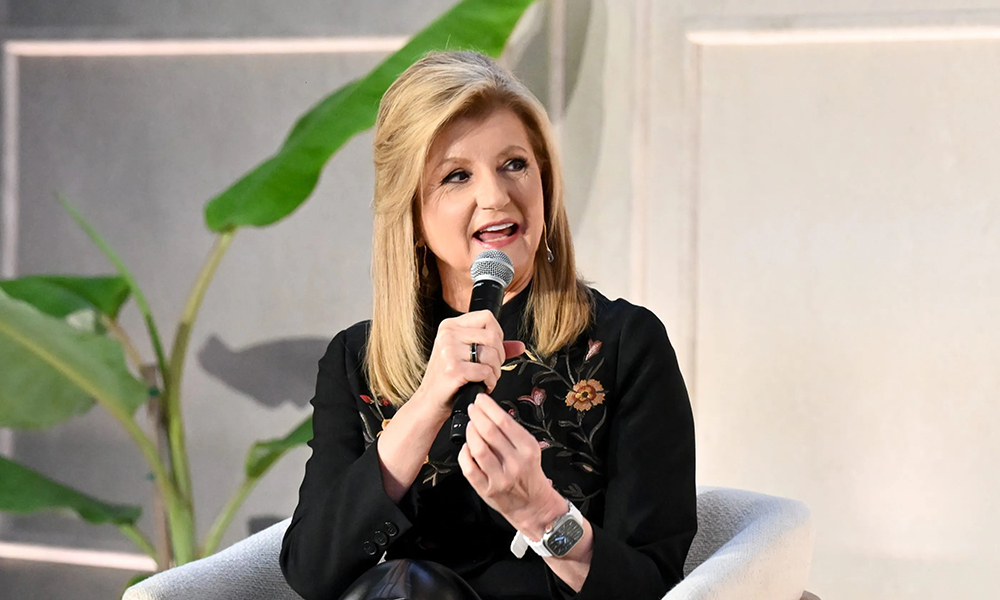
关于人工智能将如何掀起医疗保健行业的革命,有各种各样的猜测。医疗健康领域的思想领袖们迫切希望看到,人工智能如何最大程度减少医疗保健从业者的倦怠和人手不足问题。有人正在探索除了在诊所内的应用外,人工智能如何为日益增多的老龄化人口提供支持,减少慢性病流行,并改善生活质量。
OpenAI的山姆·阿尔特曼和Thrive Global的艾莲娜·赫芬顿将合作寻找人工智能解决方案,为1.3亿确诊患有至少一种慢性疾病的美国人提供支持。
周一,OpenAI创业基金(OpenAI Startup Fund)和Thrive Global宣布投资成立Thrive AI Health公司。该公司将开发一款人工智能健康教练,可参考人类的生物特征和生活方式习惯,提供个性化的健康建议。这款人工智能教练将基于科学数据,并使用Thrive的行为改变方法论进行训练,以改变微习惯为中心。
行为改变平台Thrive Global的创始人兼CEO赫芬顿对《财富》杂志表示:“我们通常会从生产力的角度谈论人工智能,认为它能让人类从繁重的工作中解脱出来。人工智能当然有非常重要的应用。但归根结底,关键在于人工智能如何从根本上改善我们的健康和延长寿命。如果你将人工智能看作是一种新政,通过推动有形基础设施来改造国家和普及福利,那么人工智能就可以作为一个关键基础设施的一部分,在更有效的医疗保健系统中持续为普通人提供支持。”
该公司任命前谷歌(Google)高管德卡洛斯·勒夫担任Thrive AI Health的CEO。勒夫在可穿戴技术和产品开发方面拥有丰富经验。
勒夫在宣布成立该公司的新闻稿中表示:“最近人工智能技术的发展创造了一个前所未有的机会,使行为改变变得更加有力和可持续。”
赫芬顿表示,她乐观地认为人工智能通过吸纳大数据集、识别模式和提供个性化的建议,有潜力成为“改变行为的关键”。她认为,仅仅泛泛地给人们制定走10,000步的目标或者建议地中海饮食,这是远远不够的。她说道:“现在我们有机会使用人工智能这种行为改变的‘灵丹妙药’。我们需要将只有1%的人知道和实践的做法推而广之。”
新平台的人工智能健康教练能够在睡眠、饮食、健身、压力管理和社交联系方面提供个性化建议。用户可以自愿向健康教练提供健康信息,包括睡觉时间、喜欢的食物和减压方式等个人偏好。
赫芬顿表示:“我们知道,当人们看到价值之后,就会愿意分享。”
她认为,随着时间的推移,当人们看到产品的好处时,就会建立起信任和责任心。
赫芬顿和阿尔特曼在《时代》杂志的一篇专栏文章中写道:“想象一下一名患有糖尿病的忙碌的职场人士的生活。你可能很难控制自己的血糖,而且因为紧张的日程安排经常没有时间吃饭和锻炼。个性化的人工智能健康教练,使用你的医疗数据和日常生活进行训练,可以及时提醒你吃药,提供快速健康的膳食选择,并鼓励你短暂休息进行锻炼。”
随着人工智能干预措施的广泛推广,健康公平成为人们普遍关注的问题。Thrive AI Health携手人口健康与医学教授、纽约大学朗格尼健康公平卓越研究所(NYU Langone’s Institute for Excellence in Health Equity)主任格本加·阿金纳格贝博士,在缺医少药、更有可能面临慢性病风险的人群中,对产品进行测试和迭代。
赫芬顿说道:“我们永远无法为这些群体提供足够多的人类健康教练。人工智能为我们提供了规模化和精准化的可能性。”但该公司仍需要克服与数据泄露和安全漏洞有关的普遍担忧。
全球规模最大的网络安全会议的执行主席休·汤普森博士在《财富》杂志中写道:“问题是现在许多人工智能技术都是新技术,而管理新兴风险的适当补充控制措施才刚刚形成。”新闻稿显示,Thrive AI Health将拥有“强大的隐私和安全防护措施”。
该平台的团队将快速行动,定制和测试其产品,希望未来它的产品能够成为健康基础设施的支柱。爱丽丝·L·沃尔顿基金会(Alice L. Walton Foundation)是该平台的投资者之一,该平台还与研究和学术机构建立了合作,以帮助推广其服务,包括斯坦福医学中心(Stanford Medicine)和西弗吉尼亚大学(West Virginia University)洛克菲勒研究所(Rockefeller Neuroscience Institute)。该平台的产品将提供给Thrive Global的雇主群体,并通过自保雇主和制药公司扩大应用规模。(财富中文网)
翻译:刘进龙
审校:汪皓
关于人工智能将如何掀起医疗保健行业的革命,有各种各样的猜测。医疗健康领域的思想领袖们迫切希望看到,人工智能如何最大程度减少医疗保健从业者的倦怠和人手不足问题。有人正在探索除了在诊所内的应用外,人工智能如何为日益增多的老龄化人口提供支持,减少慢性病流行,并改善生活质量。
OpenAI的山姆·阿尔特曼和Thrive Global的艾莲娜·赫芬顿将合作寻找人工智能解决方案,为1.3亿确诊患有至少一种慢性疾病的美国人提供支持。
周一,OpenAI创业基金(OpenAI Startup Fund)和Thrive Global宣布投资成立Thrive AI Health公司。该公司将开发一款人工智能健康教练,可参考人类的生物特征和生活方式习惯,提供个性化的健康建议。这款人工智能教练将基于科学数据,并使用Thrive的行为改变方法论进行训练,以改变微习惯为中心。
行为改变平台Thrive Global的创始人兼CEO赫芬顿对《财富》杂志表示:“我们通常会从生产力的角度谈论人工智能,认为它能让人类从繁重的工作中解脱出来。人工智能当然有非常重要的应用。但归根结底,关键在于人工智能如何从根本上改善我们的健康和延长寿命。如果你将人工智能看作是一种新政,通过推动有形基础设施来改造国家和普及福利,那么人工智能就可以作为一个关键基础设施的一部分,在更有效的医疗保健系统中持续为普通人提供支持。”
该公司任命前谷歌(Google)高管德卡洛斯·勒夫担任Thrive AI Health的CEO。勒夫在可穿戴技术和产品开发方面拥有丰富经验。
勒夫在宣布成立该公司的新闻稿中表示:“最近人工智能技术的发展创造了一个前所未有的机会,使行为改变变得更加有力和可持续。”
赫芬顿表示,她乐观地认为人工智能通过吸纳大数据集、识别模式和提供个性化的建议,有潜力成为“改变行为的关键”。她认为,仅仅泛泛地给人们制定走10,000步的目标或者建议地中海饮食,这是远远不够的。她说道:“现在我们有机会使用人工智能这种行为改变的‘灵丹妙药’。我们需要将只有1%的人知道和实践的做法推而广之。”
新平台的人工智能健康教练能够在睡眠、饮食、健身、压力管理和社交联系方面提供个性化建议。用户可以自愿向健康教练提供健康信息,包括睡觉时间、喜欢的食物和减压方式等个人偏好。
赫芬顿表示:“我们知道,当人们看到价值之后,就会愿意分享。”
她认为,随着时间的推移,当人们看到产品的好处时,就会建立起信任和责任心。
赫芬顿和阿尔特曼在《时代》杂志的一篇专栏文章中写道:“想象一下一名患有糖尿病的忙碌的职场人士的生活。你可能很难控制自己的血糖,而且因为紧张的日程安排经常没有时间吃饭和锻炼。个性化的人工智能健康教练,使用你的医疗数据和日常生活进行训练,可以及时提醒你吃药,提供快速健康的膳食选择,并鼓励你短暂休息进行锻炼。”
随着人工智能干预措施的广泛推广,健康公平成为人们普遍关注的问题。Thrive AI Health携手人口健康与医学教授、纽约大学朗格尼健康公平卓越研究所(NYU Langone’s Institute for Excellence in Health Equity)主任格本加·阿金纳格贝博士,在缺医少药、更有可能面临慢性病风险的人群中,对产品进行测试和迭代。
赫芬顿说道:“我们永远无法为这些群体提供足够多的人类健康教练。人工智能为我们提供了规模化和精准化的可能性。”但该公司仍需要克服与数据泄露和安全漏洞有关的普遍担忧。
全球规模最大的网络安全会议的执行主席休·汤普森博士在《财富》杂志中写道:“问题是现在许多人工智能技术都是新技术,而管理新兴风险的适当补充控制措施才刚刚形成。”新闻稿显示,Thrive AI Health将拥有“强大的隐私和安全防护措施”。
该平台的团队将快速行动,定制和测试其产品,希望未来它的产品能够成为健康基础设施的支柱。爱丽丝·L·沃尔顿基金会(Alice L. Walton Foundation)是该平台的投资者之一,该平台还与研究和学术机构建立了合作,以帮助推广其服务,包括斯坦福医学中心(Stanford Medicine)和西弗吉尼亚大学(West Virginia University)洛克菲勒研究所(Rockefeller Neuroscience Institute)。该平台的产品将提供给Thrive Global的雇主群体,并通过自保雇主和制药公司扩大应用规模。(财富中文网)
翻译:刘进龙
审校:汪皓
There’s a lot of speculation about how artificial intelligence can revolutionize health care. Thought leaders in health and wellness are eager to see how AI could minimize health care burnout and staffing shortages. Others are exploring the prospect of AI supporting a growing aging population outside the four walls of a doctor’s office, reducing the prevalence of chronic diseases, and improving quality of life.
OpenAI’s Sam Altman and Thrive Global’s Arianna Huffington are teaming up to find AI solutions for the 130 million Americans diagnosed with at least one chronic condition.
On Monday, the OpenAI Startup Fund and Thrive Global announced their funding and launch of Thrive AI Health, which will develop an AI health coach to give personalized health recommendations using people’s biometrics and lifestyle habits as references. The AI coach will be driven by scientific data and trained on Thrive’s behavior change methodology, which centers on microhabit changes.
“We talk about AI normally in terms of productivity, taking the drudgery out of work. These are, of course, very important applications of AI,” Huffington, founder and CEO of Thrive Global, a behavior change platform, tells Fortune. “But ultimately, what matters is how AI helps us fundamentally improve our health spans and life spans. If you think of it in the same way that the New Deal fueled our physical infrastructure to transform the country and democratize benefits, AI can serve as part of that critical infrastructure in a much more effective healthcare system that supports everyday people in an ongoing way.”
The company named DeCarlos Love, a former Google executive experienced in wearable technology and product development, as the CEO of Thrive AI Health.
“Recent advancements in artificial intelligence present an unprecedented opportunity to make behavior change much more powerful and sustainable,” said Love in the press release announcement of the launch.
Huffington says she’s optimistic about AI’s potential to be a “key to behavior change” by assimilating large data sets, recognizing patterns, and making personalized recommendations. It’s not enough to give people a generic 10,000 steps goal or suggest the Mediterranean diet, she says. “We now have an opportunity to use that miracle drug of behavior change,” she says. “We need to democratize what people in the 1% know and practice.”
The platform’s AI health coach will give personalized sleep, food, fitness, stress management, and social connection recommendations. Users can give the coach as much health information as they want, including personal preferences like bedtime, favorite foods, and how they like to destress.
“We know that when people get value, they’re willing to share a lot,” says Huffington.
She believes building trust and accountability comes when people see the product’s benefits over time.
“Consider what it’s like to be a busy professional with diabetes. You might be struggling to manage your blood-sugar levels, often missing meals and exercise due to a hectic schedule,” Huffington and Altman write in a TIME op-ed. “A personalized AI health coach, trained on your medical data and daily routines, could provide timely reminders to take your medication, suggest quick and healthy meal options, and encourage you to take short breaks for exercise.”
Health equity is a widespread concern for people as AI interventions scale more widely. Thrive AI Health partnered with Dr. Gbenga Ogedegbe, a professor of population health and medicine and the director of NYU Langone’s Institute for Excellence in Health Equity, to test and iterate the product on underserved populations more likely to be at risk for chronic conditions.
“We would never scale enough human coaches to reach these populations. AI gives us the scale and precision possibility,” Huffington says. Still, the company must overcome widespread concerns about data and security breaches.
“The challenge is that many of these AI technologies are new, and the right compensating controls to manage the emerging risks are just now being built,” writes Hugh Thompson, Ph.D., the executive chairman of the largest cybersecurity conference, in Fortune. According to the press release, Thrive AI Health will have “robust privacy and security guardrails.”
The platform’s inaugural team is moving fast to customize and test its product, eager to see it as a backbone of health infrastructure in the future. The Alice L. Walton Foundation is an investor, and the company has launched a partnership with research and academic institutions to help scale the service, including Stanford Medicine and the Rockefeller Neuroscience Institute at West Virginia University. The product will be available to Thrive Global’s employer base, with ongoing conversations to scale through self-insured employers and pharmaceutical companies.






